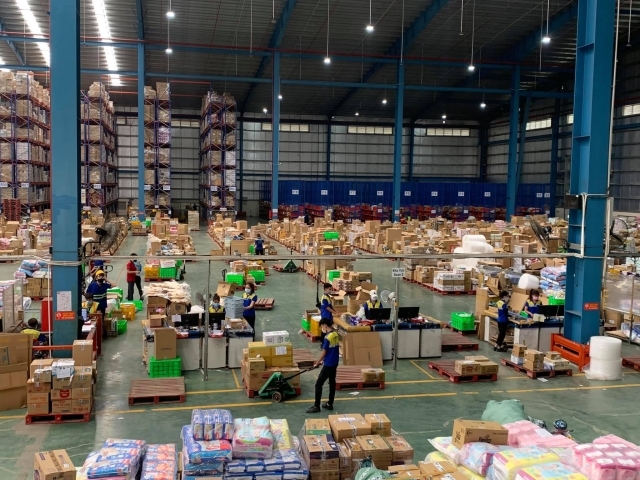Con Cung seeks 200 premises to open new outlets during the pandemic
 |
| Con Cung seeks to take advantage of dropping lease prices during the pandemic |
Luu Anh Tien, founder of Con Cung JSC, said that this is part of its plan to open 200 new retail outlets by the year-end and 400 outlets by 2022. The company prefers premises near hospitals, markets, and densely populated areas. In particular, priority is given to roundabouts, intersections, as well as corners at traffic lights with good visibility and convenient access for people. The premises should be 8m or more in width.
"If any premises meet the criteria, they can be rented immediately during the social distancing period," he added.
Concung.com was founded in 2011. Con Cung used the first round of investment by Daiwa-SSIAM II in November 2016 to successfully develop and integrate a children’s toys store (Toy City) and apparel (Concung Fashion) store.
After restructuring its ownership and receiving investments from domestic and foreign funds in 2016, Con Cung began to expand its presence with 100 stores. By 2019, the number of its stores reached 331, with sales of nearly $100 million. In 2020, Con Cung has reached 375 stores with sales of about $150 million.
Previously, the company's leaders planned to develop the Con Cung chain to 1,200 stores by 2023, with a turnover of $1 billion.
Con Cung is currently leading the market in terms of points of sale and revenue, outperforming other retailers like BiboMart, Kids Plaza, Shoptretho. Currently, the company manages three separate brands namely 485 Con Cung mom and baby retail stores, 58 ToyCity toy retail stores, and 36 CF 0-12 children's fashion stores. In the Ho Chi Minh City market, Con Cung has as many as 150 stores.
Many people believe that Con Cung's plan to seek new premises due to pressure from investment funds. The company may take advantage of declining rental prices to secure good premises. However, Tien said that Cong Cung posted organic growth due to selling essential products.
Earlier this year, Con Cung issued VND50 billion ($2.17 million) of bonds to supplement working capital for the parent company and its subsidiaries. Accordingly, 50 per cent of this capital will be used to open new stores, 30 per cent to improve existing stores, and 20 per cent in other investments.
What the stars mean:
★ Poor ★ ★ Promising ★★★ Good ★★★★ Very good ★★★★★ Exceptional
 Tag:
Tag:
Related Contents
Latest News
More News
- VIFC launches aviation finance hub to tap regional market growth (February 06, 2026 | 13:27)
- KKR and Singtel step up data centre investment in Southeast Asia (February 06, 2026 | 13:09)
- MAE names big 10 policy wins in 2025 (February 06, 2026 | 08:00)
- US firms deepen energy engagement with Vietnam (February 05, 2026 | 17:23)
- Vietnam records solid FDI performance in January (February 05, 2026 | 17:11)
- Site clearance work launched for Dung Quat refinery upgrade (February 04, 2026 | 18:06)
- Masan High-Tech Materials reports profit: a view from Nui Phao mine (February 04, 2026 | 16:13)
- Hermes joins Long Thanh cargo terminal development (February 04, 2026 | 15:59)
- SCG enhances production and distribution in Vietnam (February 04, 2026 | 08:00)
- UNIVACCO strengthens Asia expansion with Vietnam facility (February 03, 2026 | 08:00)




















 Mobile Version
Mobile Version